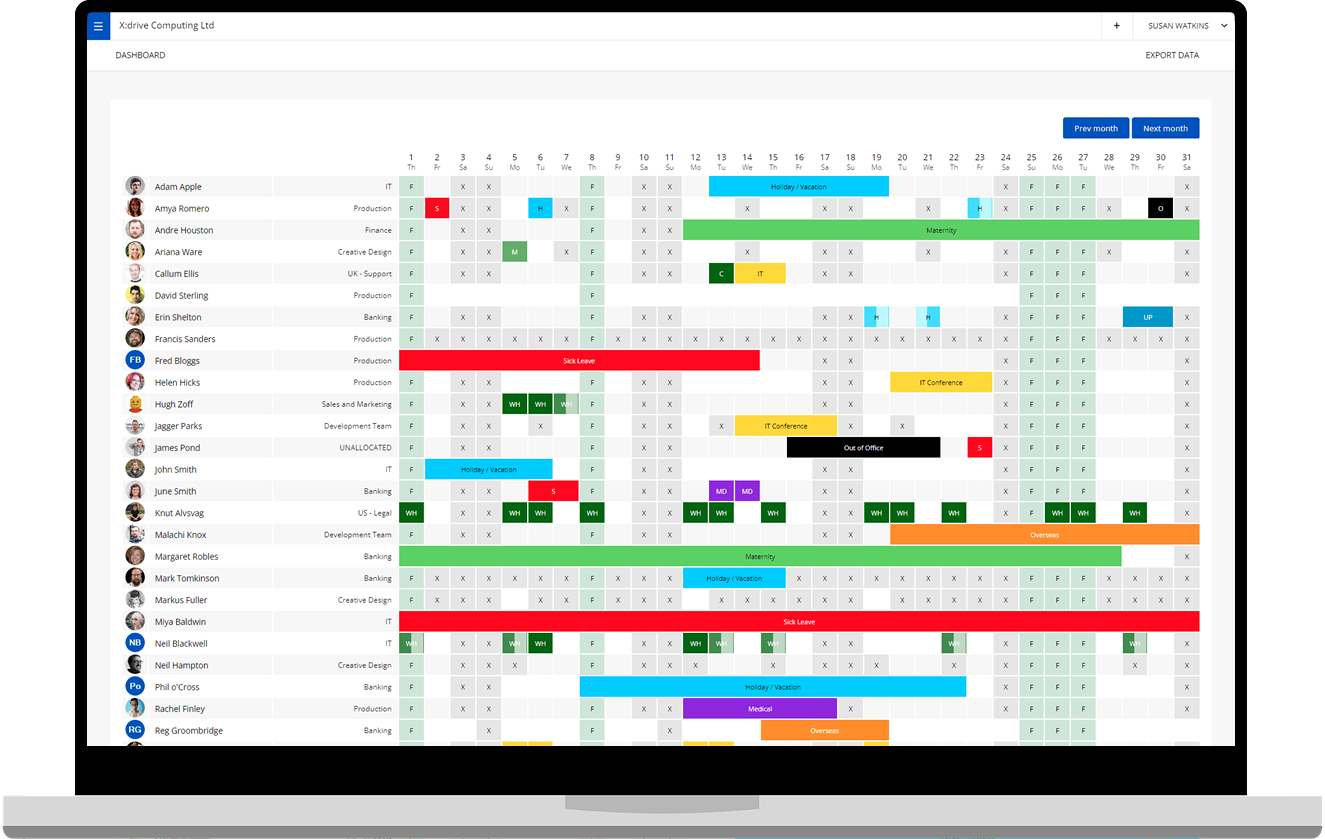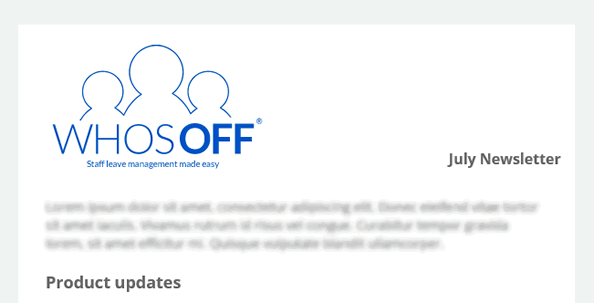In business, you’re only as strong as your people – yet professionals are working longer hours and taking more tasks home with them than ever before. It’s a company’s job to protect talented staff, making sure they have time to recharge so they can work at their happiest and most productive.

However, many firms are inadvertently contributing to employee burnout by creating a culture where taking holiday is frowned upon. Employees should be enjoying regular time away from the office, coming back refreshed, revitalised and ready to make a difference – and a better holiday planning structure can enable this shift in attitude.
Employee burnout has reached white hot levels
Employee burnout is a major problem for businesses in 2020. A recent US study found that more than 60% of professionals feel mentally fatigued and drained by the pace of working life, and the story is similar across the world.
Why are burnout levels so high in the modern workplace? A major contributing factor is availability; staff can access their emails 24/7 through their smartphone, which means many of them find it hard to switch out of work mode at the end of the day. Additionally, if other team members are responding to messages late at night or over the weekend, colleagues can feel pressured into replying straight away.
Operating in an always-on environment also encourages a fast working pace during office hours, and many employees find their stress levels reach breaking point as they are pushed to meet deadlines quicker and quicker. There’s often unspoken competition to be the fastest or most efficient person in the team, and this can force people to work faster than they feel comfortable, for fear of being seen as inferior.
A different experience between contract and culture
Very few company bosses demand their staff put in overtime, push deadlines forward or respond to communications outside of contracted hours, but peer pressure can make staff feel like company culture is very different in reality from formal values. To break this vicious cycle, senior personnel must lead by example, creating a kinder working environment that is less likely to burn employees out.
Attitudes to taking paid leave can play a major role in safeguarding people’s wellbeing in the workplace. If someone is frightened of seeming uncommitted, they may shy away from taking holiday – in the UK, over a third of professionals fail to use their full holiday entitlement – but without a good break, the daily grind can take its toll.
How do we put an end to this fear of taking time off? The answer lies in leading by example – and keeping a closer eye on holiday policies and allocations.

Senior people must set the tone
Company bosses lead by example, so it’s very important they encourage staff to take holiday by booking time off themselves. If an organisation can survive without the head honcho for a week or two, no member of staff needs to fear the consequences of taking annual leave!
Another critical responsibility of senior personnel is setting the policies around paid time off, and then enforcing them correctly. Most managerial and HR staff are good at making sure holiday requests meet the required notice period, are logged correctly and avoid calendar clashes – but how many ensure that people are taking enough leave?
Keep a closer eye on staff holiday bookings
One of the reasons that staff can slip under the holiday radar is a lack of a credible system that shows exactly how many vacation days each team member has used. If companies are coordinating leave requests through paperwork, spreadsheets and other manual processes, it’s hard to track holiday entitlements in real-time.
The simplest way to keep a close eye on employees’ leave allowances is to switch to an online holiday planner, which shows all members of staff exactly how much of their holiday has been taken, and how many days are left to take.
In addition to helping company leaders see who needs to book holiday, a good leave management system will integrate other types of leave, such as time off in lieu (TOIL). This prevents scenarios in which staff seem to be taking their annual leave entitlement, but are still working long hours as they’re accruing a lot of unused overtime.

Peer pressure can have positive consequences
With centralised company holiday planning, staff at all levels can take greater responsibility for making sure every team member gets the time off they want (and need). It also helps to democratise the decision-making process; if two people in the same department request a particular day off, priority can be given to the person who has taken less holiday to date.
An online holiday calendar that can be viewed by anybody in the company also creates positive peer pressure, as colleagues encourage each other to make use of their full entitlement. By having each other’s backs, staff feel less guilty about booking annual leave before they burn out – and their teammates are happy to pick up extra work, knowing the favour will be repaid when they need to take time off.
Plan staff holiday better with WhosOff leave management software. Book your free WhosOff trial to start tracking annual leave online.
Photos by Kat Jayne and Tirachard Kumtanom of Pexels.com
Similar articles
10.APR.2025
As a business owner, HR manager, or professional responsible for managing a team, one of the key tasks you will face is understanding and planning for the number of working days in a year and working weeks in a year. Using an online leave management tool such as WhosOff can relieve some of this burden.
01.APR.2025
As the new financial year begins, businesses are gearing up to streamline operations, optimize resources, and ensure smooth workflows. One critical aspect of this preparation is managing staff leave effectively, here's where WhosOff can help.
28.JAN.2025
As a fundamental part of any business running smoothly, the management and tracking of staff leave is often a task that can be overlooked but can have a major impact on operations when things go wrong.
16.OCT.2024
Learn how our customers have accelerated their internal business processes by integrating with the WhosOff API to manage their staff leave and absence tasks.


